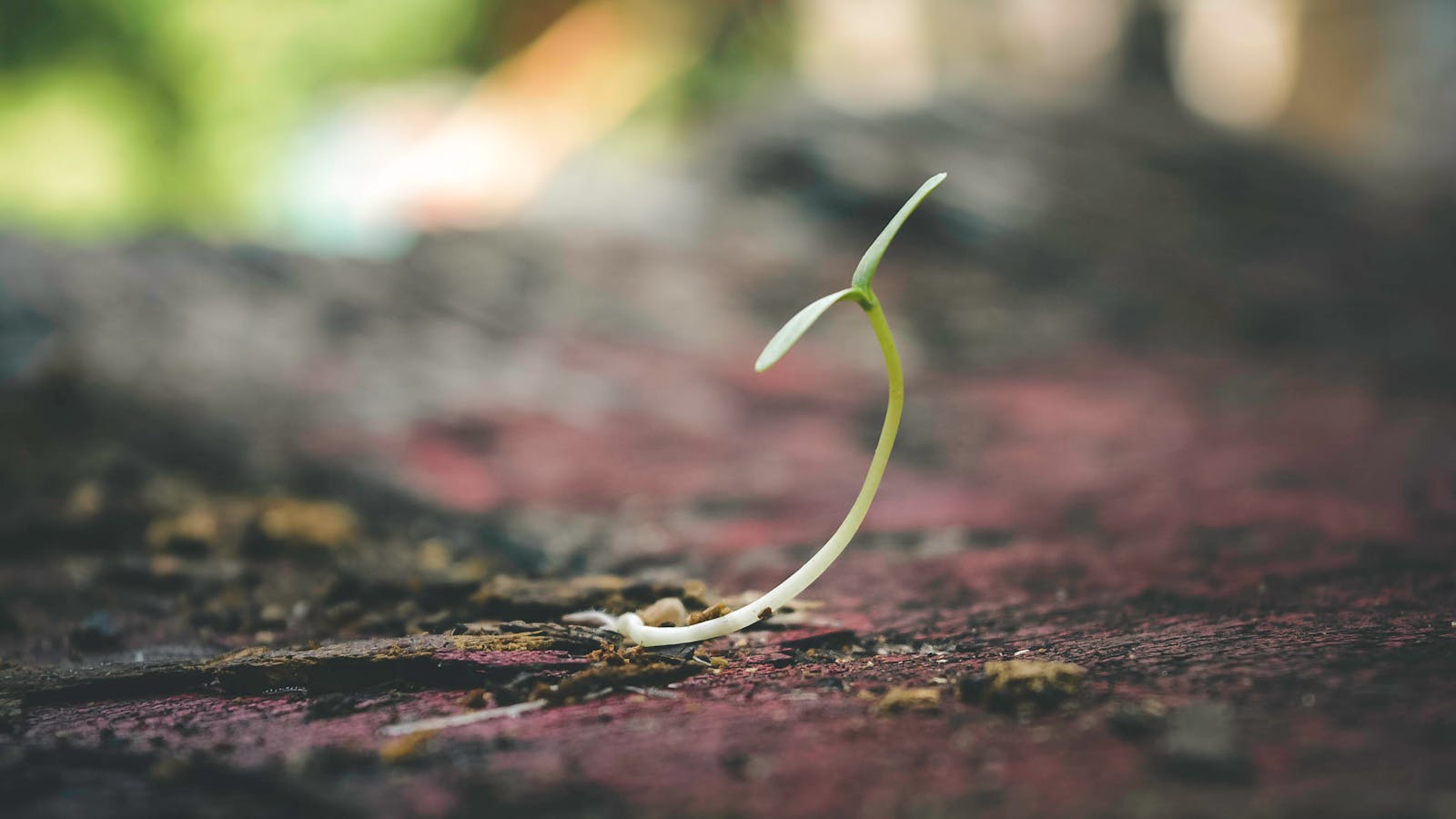Spiritual Guidance Blog
Endings and Beginnings…The Cycle of Life
by Robert Meagher on 11/12/23

Bear with me as I take a philosophical romp through musings
about endings and beginnings. Or is that beginning and endings…
I write this piece on the last day of February 2023. When I
rise tomorrow, it will be the first day of March. This milestone got me
thinking about beginnings and endings…endings and beginnings.
Our life is full of beginnings and endings. It would seem
that everything we begin at some point comes to an end. We start a project,
that usually comes to an end at some point. We start a race and it too will
eventually come to an end. We rise each morning to a new day, that ends. We
start a relationship, and those too come to an end.
Many things in life repeat this cycle over and over. Take,
for example, my preceding mention of rising each morning to a new day. The day
comes to an end; but begins anew when we rise the next day. The ending of one
project can mark the beginning of another project. The ending of a relationship
opens us to starting a new relationship.
Is there anything in life that remains constant? Is there
anything in life that does not end? Is there anything in life that does not
begin?
Love is such a one. Love does not end. We may think we stop
loving people or things. But where does that love go? Does love just stop? Or
does it get stored up until we redirect our love to something or someone else?
But where did that love go ‘in between’?
Life itself does not end. Cut down a tree and new growth
will eventually emerge from the tree stump. Throw out a plant and through the
process of decomposition the plant will create fertile soil for the birth of
new vegetation. This process is abundantly evident with the cycle of deciduous
trees dropping their leave in the fall and the leaves providing nutrient-rich
material to feed the forest floor, and foster the growth of new plant life.
Another interesting angle to this philosophical exploration
of beginnings and endings is to ask yourself how you begin things, and how you
end things? Generally speaking, how do you start things? With excitement? With
hesitance? With resistance? Does it depend on what you are starting? What about
endings? Generally speaking, how do you end things? Quickly? Do you tend to let
things drag on? Are endings happy things? Or reason for otherwise for you?
Again, does it depend on what you are ending?
Can we plan the ending of something? Or the beginning of
something else? Can life be planned? I mean, can I truly plan what will happen
in my life? Am I in control of this life?
Endings and beginnings…or is that beginnings and endings? Or
is this all just about the cycle of life?
Robert Meagher has been ordained as an Interfaith Minister and certified as a Sacred Attention Therapy (SAT) Therapist. Robert is the Founder and Spiritual Director for Spiritual Guidance and Co-Founder of the Center for Human Awakening.
Removing YOU From My Language
by Robert Meagher on 10/04/23

I am an avid student of non-dual spiritual teachings. Like
with any spiritual teaching, my passion is in a lived experience of the
spiritual teaching. That is, how do I live the spiritual teaching in my life?
For me, one of the purposes of spiritual teaching is to live it in my life.
Otherwise, why study it?!
But living spiritual teaching, dual or non-dual alike, can
be a challenge. These wonderful, philosophical prose sound great on paper (or
on the screen), but what do they look like in real life? How can I integrate
them into my daily life to live a life the teachings profess and guide us
toward?
One of the foundational, non-dual spiritual teachings
relates to a transition from separative perception to union with all life.
Separation in non-dual teachings is merely to experience something as separate
and distinct from myself. This separative experience is most clearly
demonstrated in our perception of other people. We see others as separate
entities, separate bodies. And with more 8 billion people reportedly living on
our planet, there are no shortage of opportunities to see others as separate
from ourselves.
In non-dual teachings, we are taught that nothing and no-one
is separate from us. We are all ‘one.’ But what does that look like? What does
it feel like? How can I experience that oneness? Are there exercises I can do to
practice this oneness in my life?
Last month I began to experiment with a practice that is
intended to help train my mind to stop treating other people as separate from
me. The practice involves removing the word ‘you’ from my language. What does
this look and sound like?
The word ‘you’ is ubiquitous in our language. If we watch
the words we speak, we may be surprised how often we use the word ‘you’ on a
daily basis. The word ‘you’ immediately supports a dualistic viewpoint. The
object of our ‘you’ presupposes something is separate and distinct from us. By
virtue of the fact we use the word ‘you,’ we have assumed that ‘you’ is
separate from us. But how can I change this language behavior?
Here are some examples of common, everyday speak, that I am
playing with to change my language…
|
Common phrases we may use |
Restated… |
|
“But you
said…” |
“What I heard
was…” |
|
“Do you want
to…” |
“How about
we…” |
|
“It’s all
your fault…” |
“What parts
did we play in this?” |
|
“How are you
today?” |
“How are
things?” “How’s it going?” |
The above examples are not merely neuro-linguistic
programming techniques. The above examples are practices to help remove the
basis of separative thought and thinking. In the first example (changing “But
you said…” to “What I heard was…”), I am taking responsibility for what I heard
and not defaulting to blaming another. In the second and third examples, I am
removing ‘you’ and replacing it with ‘we.’ At least these practices set the
stage for a united perception. Instead of seeing another as separate from me, I
am beginning to use language that facilitates togetherness and union.
Have you played around, experimented, with this linguistic
practice? Are there other examples of instances where the word ‘you’ was
removed from spoken language? If so, I’d would love to hear of these practices
so we may support ONEanother and support our growth toward unity.
Robert Meagher has
been ordained as an Interfaith Minister and certified as a Sacred Attention Therapy (SAT) Therapist. Robert is the Founder and Spiritual
Director for Spiritual Guidance and Co-Founder of the Center for Human Awakening.
Forever Learning
by Robert Meagher on 09/11/23

Allow me to begin this passage with a parable…
A venerable leader of a spiritual community was
nearing the end of her embodied life. As this leader lay on a bed, many members
of the spiritual community gathered around her to be with her at this
transformative time. One member of the community who was sitting next to her,
reached out, gently touched her hand, and asked “How are you doing?” To which
the venerable leader responded, “I’m still learning.”
During a recent Holiday Season, I called and spoke to one of
my sisters. It was good to get caught up on each other’s lives. During the
conversation, I learned of some stressful situations unfolding in my sister’s
life. My sister expressed her concern for various situations involving her
children that were causing my sister great unrest. I listened, occasionally
asking questions for clarification purposes, but offered no counsel or advice.
After I got off the phone with my sister, I pondered our
conversation. I felt like I was allowing myself to be drawn back into the
family dynamic. I began to recall many such conversations with family members
in the past. I also recounted experiencing these family unfoldings first hand
when I lived in close proximity to my family members.
During dinner that evening, I recounted the above
conversation with my sister to my partner. After listening for approximately 10
minutes to my experience, my partner reflected back to me that it’s possible I
was feeling ‘drawn into’ my family dynamic because I was judging my family
members. I recoiled at the suggestion I was judging my family members and
shuttered at the thought of such mindless behavior. My nuclear family, and the
dynamics that connect the family, has been the source for many hours of inner
work and contemplation. I thought I was above judgement of my family members by
now. Apparently not!
The more I thought about my partner’s comments, the more I
realized my partner was right. Not only have I judged my family members in the
past, but I continued to judge them—as evidenced by feeling ‘drawn back into’
the family dynamic.
I was initially quite discouraged at the folly of my
judgement. But then was reminded of the beautiful teaching by Ram Dass… “I
would like my life to be a statement of love and compassion—and where it isn’t,
that’s where my work lies.”
Clearly, I still have some work to do in extending love and
compassion in all situations. Clearly, “I’m still learning.”
Robert Meagher has
been ordained as an Interfaith Minister and certified as a Sacred Attention Therapy (SAT) Therapist. Robert is the Founder and Spiritual
Director for Spiritual Guidance and Co-Founder of the Center for Human Awakening.
Stop Looking at It as A Battle
by Robert Meagher on 07/07/23

This month’s message is a simple, yet precious, little story
about how we look at things can make all the difference.
I live in a 110-unit condominium building. There is a
wonderful sense of community in this building. In part, because of numerous
community-based initiatives going on in and around the building. One of these
initiatives is an old-fashioned composting program. This composting program
uses discarded, raw fruits and vegetables, and other compostable matter, to
create rich soil additive for the gardens around the property. The program has
been a tremendous success for the community, and even some of the wildlife.
One of the wildlife benefactors of this program is the local
squirrel population. The squirrels have easy access to the bin contents via air
vents that they have widened to aid in their access and exit from the bins. I
have tried plugging up the holes in the past, but the squirrels are very adept
at undoing whatever efforts I make to block the holes. Years ago, I decided I
liked the idea the squirrels could avail themselves of the fresh produce in the
bins, especially during the cold winter months, as it provided a dependable
food source for them.
This season, however, the squirrels have been making their
presence known more than usual. Often, the squirrels choose to excavate a
significant portion of the bin contents outside the bin, leaving mounds of
compost strewn around the base of the bins. On the days I discover the squirrels
mischievous behavior, there are typically several squirrels perched on branches
in the trees above the bins, gazing down at me.
When I’m in a playful mood, I will talk to them. I’ll tell
them I’m glad they are enjoying the compost deposits but ask them if they could
mind their manners a little better so as not to leave so much leftover outside
the bins. Sometimes, the squirrels will peer down at me, squawking at me,
twitching their tails, chattering away. I’ll often carry on my exchange with
them—as I pick up the mess—treating them like they know full well what I am
saying. It’s become a bit of a playful game between me and the squirrels.
Surely, if anyone was watching the scene from afar, they would want me
committed!
Earlier this week I ran into a community member at the
compost bins. She was making a deposit of some compostable material. We got to
chatting and the topic of the local squirrel community came up. I shared my
experience above with her. We both laughed and she said to me…
“You know, when we stop looking at it as a battle, we can
begin to look at it as a circus.” We both roared laughing.
I walked away from the exchange with a profound sense of
gratitude for the gracious exchange and the endearing pearl of wisdom offered
me. While the little jewel was offered in the context of the playful times I
was sharing with the squirrels, I was very aware how far-reaching this little
wisdom saying has in our daily lives.
How often do we approach life as a battle? A confrontation,
an argument, an upset, a long-held grievance against a colleague, friend, or
family member. There is no end to the litany of battles we wage on an ongoing
basis.
But what opportunities are there to turn these battles into
something we can laugh at and have fun with?
Robert Meagher has
been ordained as an Interfaith Minister and certified as a Sacred Attention Therapy (SAT) Therapist. Robert is the Founder and Spiritual
Director for Spiritual Guidance and Co-Founder of the Center for Human Awakening.
I Can’t Change Anyone
by Robert Meagher on 05/03/23
I was in the kitchen with my beloved partner when my partner
let into me about some items that were out of place in the kitchen. It was a
bit jolting to be barked at for something that seemed so insignificant as a
knife that was out of place in the cutlery drawer. In the moment, I simply
apologized and said I would try harder the next time to place the knife in its
right place. Thank goodness I was in a peaceful state of mind at the moment and
was able to respond instead of react to the unfolding events.
Later that day my partner apologized to me for his outburst.
He asked me if there was anything that bothered me about things he did? I
paused, realizing this was a formative moment. “Sure!” I said. “Then why don’t
you tell me?” asked my partner. I explained to my partner that I have come to
realize that I cannot change him, or anybody else.
We are all set in out ways. We all have our little,
sometimes big, foibles and idiosyncrasies. We are often very set in our ways,
and these ways become so entrenched in our psyche and behavior that to change
them would be tantamount to moving a mountain.
People are who they are. People do what they do. The sooner
I accept this fact, the sooner I can come to peace with whatever situation
greets me. The lesson and teaching in events that bother us rests in asking
ourselves, “Why does that bother me?”
If the car keys are not in the place they ‘should be’ and I
get upset, I must reflect on why it bothers me that the car keys are not in the
place they should be. If the grocery list is not arranged how I like it and I
get upset, I must reflect on why it upsets me that the grocery list in not
arranged how I like it. If it bothers me that I go into the fridge to get some
milk, and there is no milk left, and I get upset because there was milk in the
fridge earlier in the day, I must reflect on why it upsets me that there is no
milk left in the fridge. You get the idea.
Nothing is as it seems. And I am never upset for the reason
I think. The other person is not upsetting me. I am getting upset. If I ever
want peace in my life, I must stop wanting to change other people and events. Learn
to accept them as they are, and welcome it as an opportunity to reflect on why
a person or event upsets me. This introspection will lead us to peace and
personal growth.